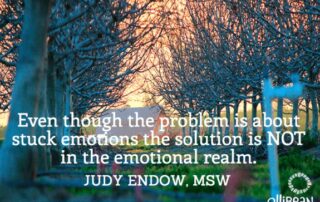Autism, Sensory Regulation and Movement Fluidity
Many any individuals with classic autism seem to have neurological movement differences. When these movement differences play out in our bodies, it is easy for onlookers to see, as we may get stuck in one position or in repetitive movement. Sometimes there can be difficulty in getting a body movement going, and at other times once our body is in motion, we cannot stop even if we want to. These movement differences can also play out in thoughts, speech, and emotions, areas that are not as readily observable to onlookers, yet can be daily obstacles to outsmart for some of
Autism and Stuck Emotions
It has taken most my lifetime for me to begin figuring out stuck emotions in relationship to my autism. In discussing this with other autistic adults I have discovered many share this problem. Some describe the stuck emotions as being shut down. There are variations of experience, but there seems to be a shared experience of stuck emotions in autistics. Everyone I have discussed this with agrees that stuck emotions are quite difficult to deal with and, in fact, have led to much misunderstanding and sometimes to psychiatric hospitalizations. Even though I have been talking to other autistics about this
Autism, Inflexibility and Diversity
A universal assumption about autism is that autistic people tend to be inflexible and it is NOT GOOD to be inflexible. Let’s take a look at that assumption. Neuro majority people talk a lot about the inflexibility and the rigidity of autistic people. Seems like they get stuck in that train of thought. Isn’t it quite a narrow perception to believe that everyone should be just like you and should conform to your ways? And yet, as an autistic, if I want to get anywhere in the world I need do just that - to conform to the ways of
Outsmarting the Hard of Autism to Attend Live Theater
I love musicals and other live theater performances. About five years ago I googled the name of the performing arts theater in my town along with “season tickets” and was delighted to discover the possibility for a whole new adventure! My friend Marilyn and her adult son Jimmy (who also likes musicals and has autism) decided they would like to do this too. Each year I am the person who sends out the information on shows and orders the tickets for all three of us. Along the way we had to outsmart the hard of our autism and figure out
High-Functioning or Low-Functioning?
In this life I am missing the ability to go out into the world and just be accepted for my natural autistic self. I must inhibit so many of my natural responses just to fit in enough for others to allow me a place in the world. I have discovered that to have a place in this world I need to fit into it in a way that makes sense to the majority. For me, this isn't a good or a bad thing - just merely the way it is. Fitting into the world is something I need to balance
The Pseudo Logic of “Not Autistic Enough”
Recently, I was told by a parent of a child on the autism spectrum that I am "not significantly enough affected by autism to be able to understand real autism" and therefore should stop speaking out about autism. Some aspects of my personal history (Endow, 2009) that you may find interesting include: Was nonverbal for some time Had self-injurious behaviors Lived in an institution for some years of my childhood Lived in two different groups homes Diagnosed with classic autism I understand that as a parent of a child with significant needs you may look at me and look
Autism and the Importance of Stabilization
As an autism consultant I am often asked how I sort out what to do when I see an autistic client who is struggling in school or in life. As an autistic person I know first hand if stabilization needs are not met, regardless of the supports in place an autistic person will struggle. Stabilization consists of three areas that interplay – internal and external regulation in the context of a positive relationship. Internal Regulation ~ Sensory Diet Internal regulation has many components, but for stabilization I look at the sensory system. When a person has an autism neurology
We Are Not In Our Own World
We need to be careful about how we think about and talk about people with disabilities. One example is the reference that those who are autistic or deaf or blind or have some sort of movement differences are “in their own world.”


